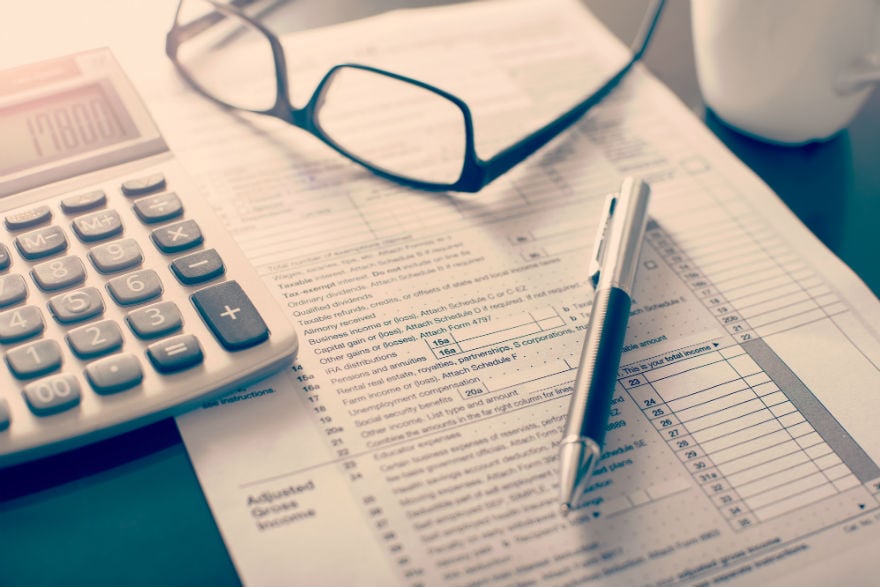As much as we’d love to avoid paying taxes so we can keep our profits to ourselves, that’s not the case, unfortunately. Each country requires people to pay an assortment of taxes of varying amounts, and this is so predetermined services can be funded in each country. And what this means for you is having to educate yourself on the Amazon tax considerations across its major marketplace locations: Europe, the United States, Canada and Japan.
European Tax Considerations
There’s no doubt you’ve heard of VAT, or Value Added Tax. It’s both a blessing and a boon, for it centralises everything into one account — but is fairly steep with the figure being at least 15%. This figure is tacked on as a percentage of the price of the goods, and varies from country to country.
How it works is like this: you have to register yourself as a VAT trader so you can get a VAT number, and then you have to show the VAT number on all invoices so your customers can see how much of the final price is because of tax. In return, you’ll know exactly how much money you need to be passing on to tax authorities.
It’s important to keep in mind that VAT numbers differ across European countries, even if you’re an FBA seller. If you’re selling in multiple countries, get a VAT number for each country so you can properly pay the tax each time. As well, if you’re importing into the European Union, then you might have to pay VAT as soon as your items cross the border, as well as the country they’re headed to. But if you’re selling on the European Amazon site to someone who doesn’t live in the EU, you may not have to pay the VAT.
Read more about European regulatory considerations
American Tax Considerations
The Internal Revenue Service (IRS) is the regulatory body in the United States that you’ll need to deal with.
As an American Amazon seller — you have to file a Form 1099-K if you’ve both made more than 200 transactions, and made more than $20,000 in unadjusted gross sales (in a calendar year).
If you’re not an American Amazon seller but are selling on the American Amazon site, then the form you have to fill out is called a Form W-8BEN. This will exempt you from U.S. tax reporting requirements, but only if you’re either a professional seller or are an individual seller with more than 50 transactions in a calendar year.
Read more about United States tax and regulatory considerations
Canadian Tax Considerations
Canada Revenue on the surface seems a little less complicated than the IRS, as there are no forms to fill out, regardless of whether you’re a Canadian Amazon seller or selling on Amazon Canada. However, that doesn’t exempt you from taxes, as you’re still responsible for destination duties, taxes and custom clearance fees, and it’s on you to do this.
If you’re not Canadian, you’re going to have to become what’s called a Non-Resident Importer so you can import products into Canada under your own name and business number. You’ll get a business number that has 15 digits, with the first nine identifying your business and the last four digits — two numbers and two letters — showing your program and account.
Make sure you get your business number before you start doing business!
Once you’re good to go, get ready to start paying 5% for most of your imports plus duty if need be. A bit of bad news: if it turns out you have to add duty, get ready to pay tax on that duty. And a spot more bad news: some provinces will require you to pay a Goods and Service Tax (GST) or Harmonised Sales Tax (HST). It’s not fun, but at least Canada Revenue doesn’t charge you to register for GST/HST.
Read more about Canada tax and regulatory considerations
Japanese Tax Considerations
Whether you’re a Japanese citizen or not, you have to abide by all Japanese customs laws and regulations, such as paying the Import Consumption Tax. You may also have to pay customs duties, which depend on what the harmonised classification schedule in the Customs Tariff Law describes.
The amount you’ll have to pay depends on the customs value of the goods, customs duty payable (if need be), and other excise taxes payables. And, if you’re selling things like liquor, tobacco products, petroleum, and liquefied petroleum, then you may have to face even more excise taxes on top of that. If that’s the case, then the amount you’ll have to pay depends on how much you’re importing.
Professional Advice
Educating yourself about your tax responsibilities when selling globally is a good first start to ensuring you remain compliant, but the truth is, tax is a complicated issue when selling beyond your domestic market.


